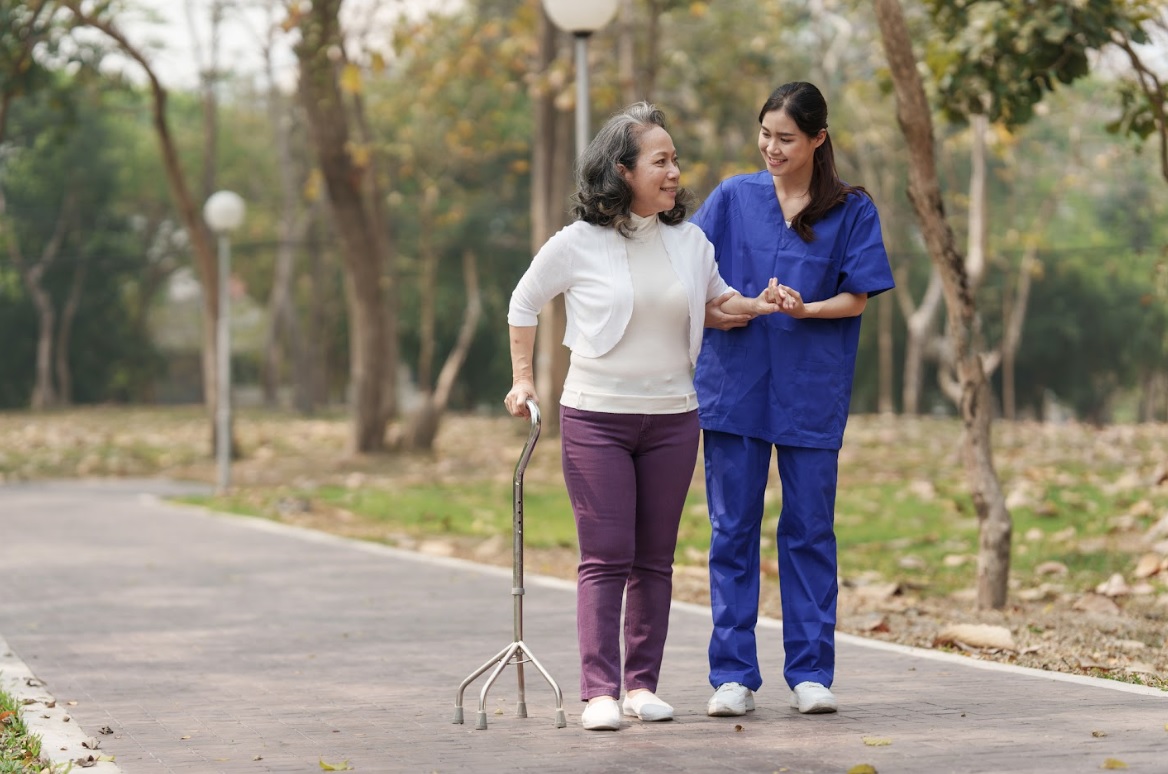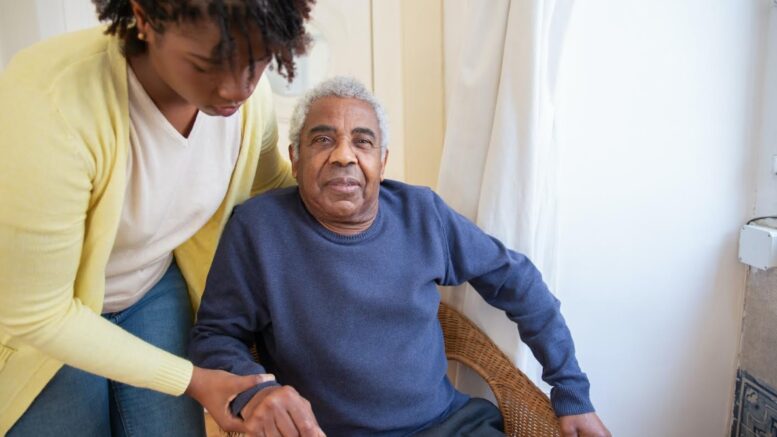As we age, our physical and mental well-being becomes increasingly important. Creating a comfortable environment is crucial for supporting the health and happiness of seniors. This article will explore the significance of comfort in promoting the mental and physical well-being of older adults.
The Significance of Comfort for Seniors
Comfort plays a vital role in the lives of seniors, impacting both their physical and mental health. As individuals age, their bodies undergo various changes that can lead to discomfort or pain. Providing a comfortable living space can alleviate some of these physical challenges and enhance seniors’ overall quality of life.
Moreover, comfort is closely tied to mental well-being. Seniors need a sense of security and reassurance, and a comfortable environment can provide just that. When seniors feel safe and at ease in their surroundings, they are more likely to experience positive emotions, reduced stress, and improved mental health. Therefore, prioritizing comfort is crucial for supporting the mental and physical health of seniors.
The Impact of Comfort on Mental Health
Comfort can significantly impact the mental health of seniors. As individuals age, they may face various challenges such as loss of loved ones, declining health, or changes in their social circle. These factors can contribute to feelings of loneliness, anxiety, and even depression.
Creating a cozy and familiar environment can help combat these negative emotions. By incorporating elements that seniors find comforting, such as familiar furniture, cherished belongings, and personalized decorations, their living space becomes a source of solace and emotional support. This can alleviate stress, reduce anxiety, and promote a positive mental state.
Additionally, comfortable living spaces can encourage social engagement and personal connections. By creating inviting areas for social interaction, such as communal spaces or comfortable seating arrangements, seniors are more likely to engage in activities and form meaningful relationships. This sense of connection helps combat feelings of loneliness and isolation, which are common among older adults. Therefore, comfort not only affects mental well-being but also promotes social connectedness.
The Impact of Comfort on Physical Health
Physical comfort is essential for seniors as it directly impacts their mobility, independence, and overall quality of life. Aging often comes with various physical challenges, such as joint pain, arthritis, or reduced mobility. Providing comfortable furniture, appropriate bedding, and temperature-regulated spaces can significantly enhance seniors’ physical comfort and overall well-being.
Investing in ergonomic furniture that supports proper posture and provides cushioning can help alleviate pain or discomfort. Adjustable beds and mattresses with pressure-relieving properties can improve sleep quality, which is crucial for seniors’ physical health. Furthermore, maintaining a comfortable temperature in living spaces can prevent extremes of heat or cold, which can exacerbate certain medical conditions. By prioritizing physical comfort, we can help seniors maintain their independence and enjoy a higher quality of life.
Creating a Comfortable Living Environment for Seniors
Creating a comfortable living environment for seniors involves considering various factors. First and foremost, the physical aspects of the living space should be taken into account. Seniors should have access to comfortable seating options that provide adequate support and cushioning. Chairs and sofas with adjustable features, such as reclining or height adjustment, can cater to individual needs and preferences.
Additionally, the bedroom is a crucial area where comfort should be prioritized. Seniors spend a significant amount of time in their beds, so investing in quality mattresses and bedding is essential. Adjustable beds can provide personalized comfort and support, while mattresses with pressure-relieving features can alleviate pain or discomfort.
Furthermore, lighting plays a crucial role in creating a comfortable living environment. Seniors may have specific lighting needs due to visual impairments or sensitivity to bright lights. Providing adjustable lighting options, such as dimmers or task lighting, can help seniors create a comfortable ambiance that suits their preferences.

Providing Emotional Support for Seniors
In addition to physical comfort, emotional support is equally important for seniors’ well-being. Creating a safe and reassuring environment can positively impact their mental health and overall happiness. Emotional support can be provided through various means, including companionship, encouragement, and validation.
Regular social interactions and meaningful conversations can help seniors feel connected and valued. Family members, friends, and caregivers can make a conscious effort to spend quality time with seniors, engaging in activities they enjoy or simply having conversations. This can help alleviate feelings of loneliness and provide emotional comfort.
Furthermore, creating spaces that evoke positive emotions and cherished memories can contribute to emotional well-being. Displaying photographs, mementos, or artwork can create a sense of familiarity and nostalgia, which can enhance seniors’ emotional comfort. Additionally, incorporating elements such as comfortable seating, soft textures, or soothing colors can contribute to a calming and emotionally supportive environment.
Promoting Physical Comfort for Seniors
Promoting physical comfort for seniors involves providing the necessary resources and support to enhance their overall well-being. This includes ensuring access to appropriate healthcare, regular exercise, and a balanced diet.
Regular medical check-ups are essential for identifying and addressing any physical discomfort or health issues. Seniors should have access to healthcare professionals who can provide the necessary guidance and treatment to alleviate pain or discomfort.
Additionally, regular exercise tailored to seniors’ needs can help improve mobility, reduce pain, and increase overall comfort. Engaging in activities such as gentle stretching, walking, or low-impact exercises can promote flexibility and strength, enhancing physical comfort.
A balanced diet is also crucial for seniors’ physical well-being. Providing nutritious meals that cater to their specific dietary needs can help prevent discomfort or health issues. Adequate hydration is equally important, as it can prevent dehydration and associated physical discomfort.
The Role of Technology in Enhancing Senior Comfort
Technology can play a significant role in enhancing senior comfort. Various technological advancements can be utilized to create a more comfortable and supportive living environment for older adults.
Smart home devices, for instance, can help seniors control various aspects of their living space, such as lighting, temperature, or entertainment systems, with ease. Voice-activated assistants or smart devices can provide convenience and independence, making it easier for seniors to adjust their environment to their preferences.
Telehealth services can also contribute to seniors’ comfort by providing convenient access to healthcare professionals. Virtual doctor visits can reduce the need for seniors to travel to medical facilities, allowing them to receive necessary care and support from the comfort of their own homes.
Furthermore, technology can enhance social connectedness for seniors. Online platforms and social media can help seniors stay connected with loved ones, participate in virtual communities, or engage in activities of interest. This can alleviate feelings of isolation and promote a sense of belonging.
Resources for Supporting the Mental and Physical Health of Seniors
Numerous resources are available to support the mental and physical health of seniors. These resources can provide valuable information, assistance, and support for both seniors and their caregivers.
Local community centers often offer programs specifically designed for seniors, providing opportunities for social engagement, exercise classes, and educational workshops. These centers can serve as a hub for seniors to access various resources and connect with others in their community.
Non-profit organizations dedicated to senior care can also provide valuable resources. These organizations offer a wide range of services, including counseling, support groups, and assistance with daily activities. They can provide guidance on creating a comfortable living environment and offer support for both seniors and their caregivers.
Online platforms and websites dedicated to senior care can be a valuable source of information and support. These platforms often provide articles, guides, and forums where seniors and caregivers can find information, share experiences, and seek advice. Online communities can provide a sense of belonging and support, even for seniors who may have limited mobility or live in remote areas.
The Importance of Incorporating Comfort into Senior Care Facilities
Senior care facilities, such as nursing homes or assisted living communities, play a crucial role in providing care and support for older adults. It is essential for these facilities to prioritize comfort by creating a therapeutic environment for patients to ensure their well-being.
Creating comfortable living spaces within these facilities involves considering the physical, emotional, and social needs of seniors. Providing comfortable and accessible furniture, well-designed common areas for social interaction, and personalized living spaces can significantly enhance residents’ comfort and overall quality of life.
Furthermore, staffing plays a vital role in providing emotional support and comfort to seniors. Caregivers and staff members should receive training on empathy, active listening, and creating a nurturing environment. Regular assessments of residents’ comfort levels and open communication channels can help address any concerns and ensure that seniors’ needs are met.
Conclusion
In conclusion, prioritizing comfort is essential for supporting the mental and physical health of seniors. Creating a comfortable environment that addresses their physical and emotional needs can significantly enhance their overall well-being and promote a fulfilling and vibrant life in their golden years.
By providing physical comfort through appropriate furniture, bedding, and temperature regulation, seniors can experience reduced pain, improved sleep quality, and enhanced mobility. Emotional support, through companionship, familiar surroundings, and social engagement, can alleviate feelings of loneliness, reduce anxiety, and promote positive mental health.
Technology can also play a significant role in enhancing senior comfort, providing convenient access to healthcare, promoting social connectedness, and empowering seniors to control their living environment.
Resources, such as community centers, non-profit organizations, and online platforms, are available to support the mental and physical health of seniors. These resources provide valuable information, assistance, and a sense of community.
Lastly, senior care facilities should prioritize comfort, creating comfortable living spaces and providing emotional support to ensure the well-being of their residents.
By recognizing the importance of comfort and taking steps to incorporate it into the lives of seniors, we can enhance their overall well-being, promote a higher quality of life, and honor the wisdom and experience they bring to our society.
